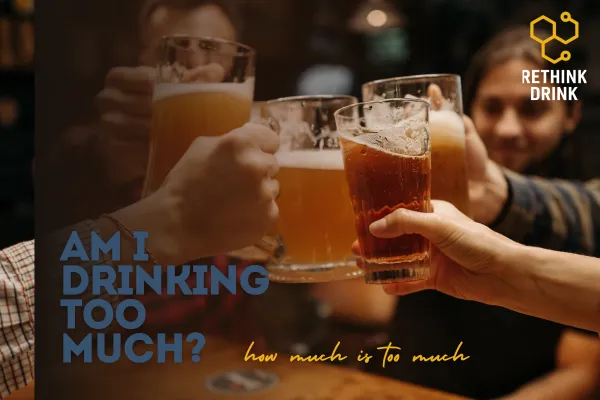Sinclair Method Studies
This article examines the scientific foundation behind TSM, drawing on nearly three decades of peer‑reviewed trials, neuroimaging research, and systematic reviews.

It’s a common concern: Am I drinking too much? And with good reason. While 14 units per week is the current UK guideline for low-risk drinking, what really matters is how alcohol fits into your lifestyle and mental health.

When alcohol begins to reshape who you are, it’s normal to wonder, “Where did I go?” That’s why at Rethink Drink, we’re passionate about helping you be you again—without guilt, shame, or impossible expectations. The Sinclair Method (TSM) offers a science-led path to overcoming alcohol use disorder (AUD) that’s built on trust, not cold turkey. Let’s dive into how it works and why it’s helping thousands reclaim their lives—quietly, powerfully, and with dignity.

Alcohol dependency isn’t about weakness or moral failure. It’s a complex condition involving the brain’s natural reward mechanisms. When we drink alcohol, our brains release endorphins—feel-good chemicals that act on the same receptors as opioids. This creates a pleasurable feedback loop, making it more likely that we’ll continue drinking to chase that feeling.

In the United Kingdom, the Chief Medical Officers advise that to keep health risks from alcohol low, adults should drink no more than 14 units of alcohol per week. This guideline is the same for both men and women, and it is best to spread the intake across three or more days rather than consuming it all at once

For those who have developed a dependence on alcohol, quitting abruptly might seem like the best decision. However, sudden alcohol cessation can be dangerous—especially for individuals who consume large amounts regularly. The body becomes physically reliant on alcohol, and stopping all at once can trigger severe withdrawal symptoms.

Through TSM, gradual reduction provides a controlled framework that helps minimise relapses, making it a viable and often more sustainable choice.
The Sunday Reset
Every Sunday, we share a 2-minute insight into the logic of the Sinclair Method.
Join thousands of others for our weekly newsletter and change how you see the problem,
because when you change the way you look at things, the things you look at change.
… There’s a reason we’re called Rethink Drink!
